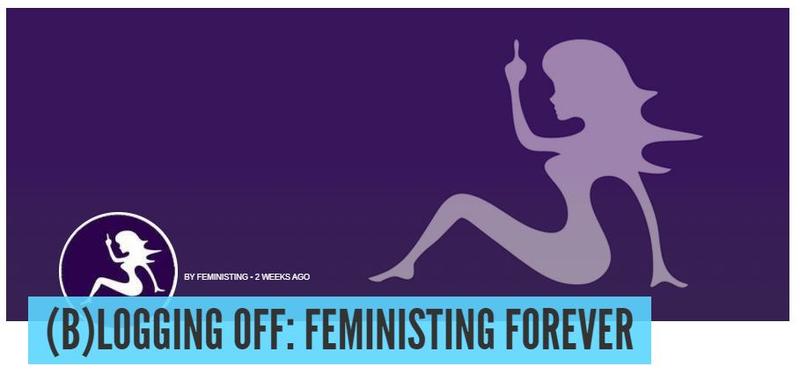
"Saying immigration is a feminist issue, and we're going to put this on the front page of Feministing, or saying our feminism is radically trans inclusive, being able to showcase a range of issues under the umbrella of feminism, given these kind of historic exclusions, was an act of politics in and of itself," Lori Adelman told WNYC's cultural critic Rebecca Carroll. Adelman was the executive editor of Feministing, the feminist website that recently announced it will shutter after 15 years.
Founded in 2004 by writers and sisters Jessica and Vanessa Valenti, Feministing was widely considered a forerunner to other feminist websites, among them Jezebel, The Toast, and The Hairpin. Jezebel is now under new ownership, while The Toast and The Hairpin, among other sites influenced by Feministing, have either shut down or been re-branded. Samhita Mukhopadhyay, a former executive editor of Feministing, and current executive editor of Teen Vogue online, said the point was to destabilize historic, outdated ideas of feminism.
"We are intersectional. We're kind of aware of class differences. We're thinking about sexuality in a way that I think historically hadn't been incorporated. And so to me, feminist blogs inherently were about that inclusion," said Mukhopadhyay. But what constitutes a feminist issue is less clear. "I think it's a healthy tension, but a constant battle," she said. "Objectivity is an an illusion. Nobody is objective. And historically, white men in newsrooms who thought they were being objective, were also pushing an agenda."
Adelman pointed to the work of black women and women of color in both the activism and journalism spaces that went unnoticed prior to this moment now, when the #MeToo movement is center stage.
"As wonderful as Ronan Farrow is," Adelman said, of Farrow, who has broken some of the most trenchant and telling stories in the movement since 2017, "I don't see other women who were having these early conversations getting the credit and prestige that he has, as a relatively privileged white man. Tarana Burke was doing this work, but #MeToo had not hit mainstream consciousness."
The end of Feministing leaves a gap in accountability media, a place that amplifies and centers the voices of women — especially women of color. But it also served as a launch pad for those voices.
"Feministing was a really interesting experiment, and a very successful one," Mukhopadhyay said. "Many of the people from Feministing have gone on to very big careers in journalism. I am feministing at Teen Vogue."
Adelman said that her 10 years at Feministing could be challenging, but in a necessary way. "We started out doing this when we were really young, and now many of us are not so young. You interests change, and you grow and learn."
